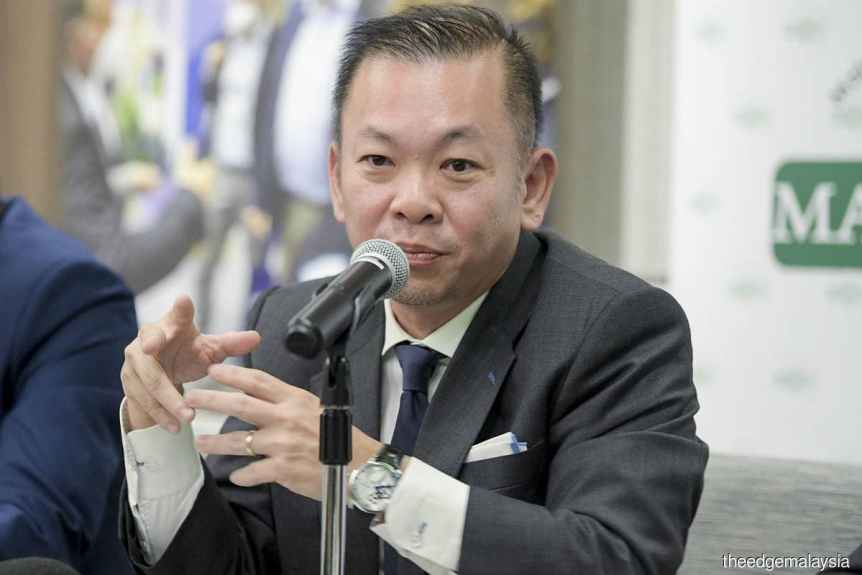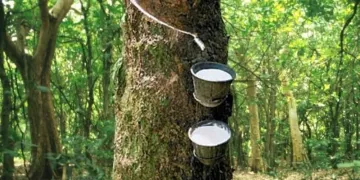KUALA LUMPUR (Sept 3): The Ministry of Plantation and Commodities said on Tuesday it plans to propose consolidation of rubber smallholders in the upcoming Budget 2025 to boost production amid a vast swath of untapped rubber trees nationwide.

‘We must understand that without a sustainable upstream, there can be no sustainable downstream,’ says Deputy Plantation and Commodities Minister Datuk Chan Foong Hin. (Photo by Shahrill Basri/The Edge)
There are currently 420,100 hectares of mature rubber trees untapped due to a labour shortage, according to Deputy Minister Datuk Chan Foong Hin. Malaysia is already a global leader in downstream sectors such as gloves, but there is still significant room for growth in the upstream segment, he noted.
“The ministry is focusing on resolving the issue of untapped rubber trees, and one of the key items on our wish list submitted to the Ministry of Finance for the upcoming Budget 2025 is to make the clustering of smallholders a national agenda,” Chan said.
He was speaking to reporters after officiating the 11th International Rubber Glove Conference and Exhibition 2024.
Malaysia — one of the world’s largest producers of rubber — has been grappling with low prices of the commodity used in everything from tyres to gloves, while a weak currency made working in the country unattractive for many of the foreign labourers.
“We must understand that without a sustainable upstream, there can be no sustainable downstream,” Chan said. “Addressing this issue is the ministry’s top priority.”
The Malaysian Rubber Board has been entrusted with helping to organise the clustering of smallholders to tackle the issue of untapped rubber trees, while the Malaysian Rubber Council will focus on promoting rubber products globally, he said.
Malaysia’s rubber glove industry would contribute up to RM12.4 billion in export value, up from RM11.8 billion last year, capturing a significant 45% of the global market share, according to the ministry’s forecast.
In July, the government through the Home Ministry allowed up to 10,000 foreign workers to serve the upstream rubber industry, but the quota had yet to be fully utilised, Chan noted.
Meanwhile, for the rubber downstream industry, “we are still working on opening up more quotas”, Chan added.





























